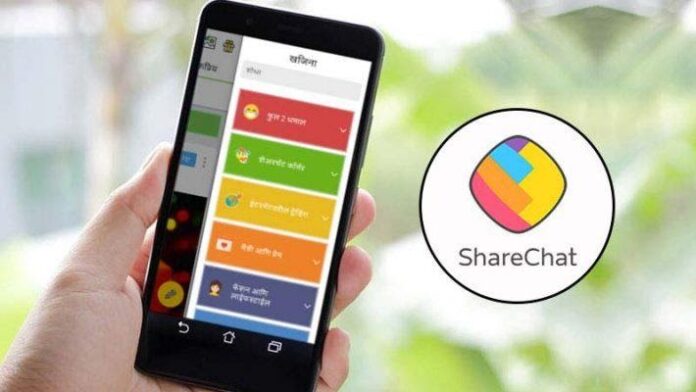One of the best social apps to communicate with friends, share jokes, and avail daily news from India within seconds is ShareChat India. ShareChat is the most convenient messaging app which enables you to make new friends, share videos, jokes, GIFs, audio songs, shayaris, motivational quotes, funny quotes, bhajans, devotional songs and funny images all in one platform.
ShareChat has all theIndian languages like Hindi, Telugu, Marathi, Gujarati, Punjabi, Malayalam, Bengali, Tamil, Kannada, Odia, Bhojpuri, Assamese, Rajasthani and Haryanavi available on ShareChat’s multi-linguistic keyboard which allows the users to connect with friends and family in their native language, all over the country more efficiently and effectively.
Here are the Features of ShareChat:
1. The App allows you to make new friends and find friends using the simple inbuilt friends’ search tool.
2. It has a vast collection of jokes, video status, memes and trolls
3. It also has a huge album of videos from Tamil movies, Bollywood movies, Telugu movies, Marathi movies and Bengali movies. It also allows the user to keep up with the latest news related to Indian movies.
4. One can get famous by showcasing your talent and become an internet celebrity.
5. It offers the best Hindi shayari, pyar shayari, romantic shayari, marathi shayari and more.
6. It has high-quality images, wallpapers and cool backgrounds.
7. It offers Beauty tips, home makeup tricks and fitness videos.
8. Get fresh news, the latest GK for school students, current affairs for competitive exams like IAS, SSC, Bank PO exams and all the latest trends of the internet.
9. It as well has Daily horoscope feature, and has best astrology in all Indian languages by birth date
10. One can send Diwali wishes, Christmas & New Year wishes, Valentine, and Holi wishes to their near and dear ones in one click on WhatsApp, Facebook and Instagram.
Read more on-
https://play.google.com/store/apps/details?id=in.mohalla.sharechat&hl=hi&gl=US
https://www.facebook.com/ShareChatApp/
https://www.instagram.com/sharechatapp/?hl=hi&__coig_restricted=1

https://trespor.com/
https://mirkulinarii.com/
https://krovinka.com/
Tiny shards of plastic are increasingly infiltrating our brains, study says
жесткое групповое порно
Human brain samples collected at autopsy in early 2024 contained more tiny shards of plastic than samples collected eight years prior, according to a preprint posted online in May. A preprint is a study which has not yet been peer-reviewed and published in a journal.
“The concentrations we saw in the brain tissue of normal individuals, who had an average age of around 45 or 50 years old, were 4,800 micrograms per gram, or 0.5% by weight,” said lead study author Matthew Campen, a regents’ professor of pharmaceutical sciences at the University of New Mexico in Albuquerque.
“Compared to autopsy brain samples from 2016, that’s about 50% higher,” Campen said. “That would mean that our brains today are 99.5% brain and the rest is plastic.”
That increase, however, only shows exposure and does not provide information about brain damage, said Phoebe Stapleton, an associate professor of pharmacology and toxicology at Rutgers University in Piscataway, New Jersey, who was not involved in the preprint.
“It is unclear if, in life, these particles are fluid, entering and leaving the brain, or if they collect in neurological tissues and promote disease,” she said in an email. “Further research is needed to understand how the particles may be interacting with the cells and if this has a toxicological consequence.”
The brain samples contained 7% to 30% more tiny shards of plastic than samples from the cadavers’ kidneys and liver, according to the preprint.
“Studies have found these plastics in the human heart, the great blood vessels, the lungs, the liver, the testes, the gastrointestinal tract and the placenta,” said pediatrician and biology professor Dr. Philip Landrigan, director of the Program for Global Public Health and the Common Good and the Global Observatory on Planetary Health at Boston College.
“It’s important not to scare the hell out of people, because the science in this space is still evolving, and nobody in the year 2024 is going to live without plastic,” said Landrigan, who was not involved with the preprint.
where and how to buy erectile dysfunction pills safely online